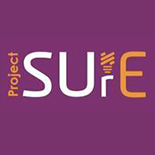

Interakcia was coordinating the project’s activities as an expert organization
Budget: € 791 725; EU contribution – € 616 725 (78% of total);
Funding: European Union through the CIUDAD Programme (Cooperation in Urban Development and Dialogue)
Location: Polotsk, Vitebsk region, Belarus; the city of Salé (Morocco).
Project partners: city administrations of Polotsk (Belarus), Friedrichshafen (Germany), Murcia (Spain), Salé (Morocco), and Intermediterranean Commission of the Conference on Peripheral Maritime Regions (France).
The project’s main achievement was encouraging two cities from Belarus and Morocco (Polotsk and Salé, accordingly) to become these countries’ first signatories of the Covenant of Mayors and develop their own Sustainable Energy Action Plans (SEAPs) until 2020 in accordance with the EU standards.
Thanks to the project experience, Polotsk city administration and Interakcia Foundation succeeded in securing more grant funding from the European Union to finance their SEAP activities in the area of sustainable urban mobility and energy efficient modernization of public lighting. This helped Polotsk to achieve its Covenant of Mayors target of reducing CO2 emissions by 20% by 2020. Polotsk’s new commitment as a CoM signatory is to cut CO2 emissions by 30% by 2030.




Thanks to the SURE project, first Energy Days in Belarus took place in Polotsk in 2012.
A bike tour under the slogan “Let’s make our Polotsk a green city!”, a discount and a free energy efficient light bulb for everyone buying a Class A household appliance in major Polotsk department stores, contests for schools and families with five and more children, lessons on energy saving in school summer camps, open door days at city plants, an exhibition of energy efficient equipment and modern technologies in construction – all these events took place in Polotsk (Belarus) on June 20-29 as part of the European Sustainable Energy Week 2012.
Creative Energy Days events in Polotsk were an inspiration for other signatories of the Covenant of Mayors. Nowadays, with support of Interakcia Foundation, Energy Days take place each year in dozens of Belarusian cities that joined the Covenant of Mayors.
